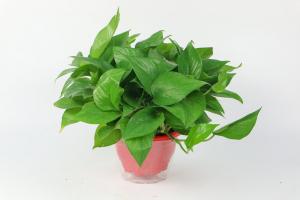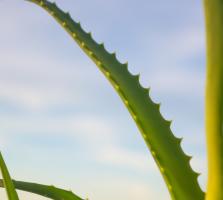Can Tap Water Kill Plants?
Water is a vital resource for plants to survive and thrive. However, not all types of water are suitable for plants. Tap water, for instance, contains chemicals that could potentially harm your plants. In this article, we will explore whether tap water can kill plants and how to mitigate the negative effects of tap water on your plants.
The Effects of Tap Water on Plants
Chlorine and fluoride are two chemicals commonly found in tap water. Chlorine is a disinfectant used to kill bacteria and viruses, while fluoride is added to promote dental health. Unfortunately, these chemicals can have negative effects on plants. Chlorine damages the microorganisms in the soil, disrupting the delicate ecosystem that plants need to grow. Fluoride can accumulate in the soil, causing toxicity and stunted growth. Additionally, tap water is often alkaline in nature, which can change the pH level of the soil, making it more difficult for plants to take up nutrients.
How to Mitigate the Negative Effects of Tap Water
Despite the negative effects of tap water on plants, there are ways to mitigate the damage. One method is to let the water sit for 24 hours before using it to water your plants. This allows the chlorine to dissipate and the pH level to stabilize. Another option is to use a water filtration system to remove the chemicals from tap water. You can also add organic matter to the soil, such as compost or leaf mold, to balance the pH level and promote healthy soil. Finally, you can choose to use rainwater or distilled water to water your plants, as these are free from the harmful chemicals found in tap water.
The Importance of Watering your Plants Properly
Aside from the type of water used, how you water your plants is also important. Overwatering can suffocate the roots, while under watering can cause the plant to wilt and die. It is important to water your plants at the right time of day and in the right amount. Early morning or late afternoon is the best time as the sun is not at its peak and the water is less likely to evaporate. Make sure to water the soil directly and not the leaves, as this can cause mold and disease.
Conclusion
In conclusion, tap water can have negative effects on plants due to the chemicals it contains. However, with the proper precautions, you can mitigate the damage and keep your plants healthy. Always water your plants at the right time of day and in the right amount, and consider using rainwater or distilled water if possible. By following these tips, you can help your plants thrive and add beauty to your home or garden.

 how many times do yo...
how many times do yo... how many planted tre...
how many planted tre... how many pine trees ...
how many pine trees ... how many pecan trees...
how many pecan trees... how many plants comp...
how many plants comp... how many plants can ...
how many plants can ... how many plants and ...
how many plants and ... how many pepper plan...
how many pepper plan...































